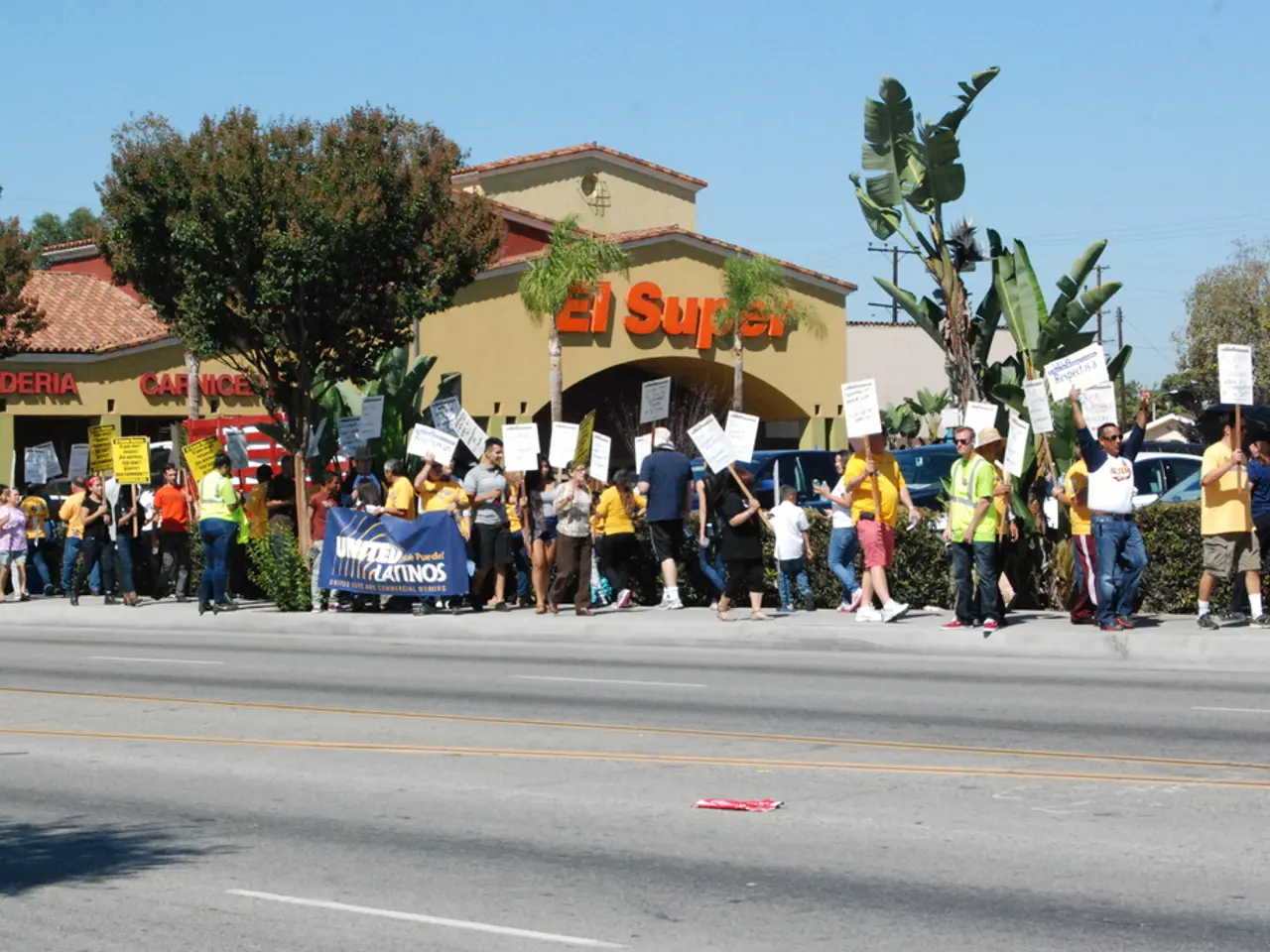Strategy Framework for Political Campaigns
In the world of politics, a well-planned and executed campaign can make all the difference. Here's how to build an effective political campaign strategy.
Targeted Voter Analysis
The first step in creating a winning campaign is understanding your audience. Identify and segment voters into groups such as loyal voters, new voters, undecided/swing voters, and opposition strongholds. Focus resources on persuadable or emerging voter groups rather than wasting effort where outcomes are unlikely to change.
Building a Relatable Narrative
Develop a compelling story around the candidate or party that highlights their history, personality, beliefs, and values. This narrative should create a relatable brand that voters can connect with and support.
Strategic Use of Media and Channels
Incorporate emerging media platforms—such as digital, social media, and mobile outreach—to reach diverse audiences effectively. Integration of all digital channels within advocacy or campaign software enables personalized messaging and better measurement of success.
Robust Campaign Team
Assemble an organized, engaged, and skilled campaign staff capable of managing day-to-day operations, communications with the press and voters, fundraising, data management, and strategic implementation.
Multi-Channel Engagement and Events
Use a combination of online and offline events (rallies, info sessions, fundraisers) to build momentum, human connection, and enthusiasm behind the campaign and cause.
Continuous Measurement and Adaptation
Track key campaign metrics like voter engagement, event attendance, conversion rates, and geographic segmentation. Use data-driven insights to adapt strategies and improve outcomes continuously.
Creating an Outreach Plan
Spread the message widely using traditional methods like direct mailers, television ads, and digital strategies such as social media campaigns and email blasts.
Avoiding Mistakes
Avoid common pitfalls such as unclear messaging, overdependence on social media, neglecting grassroots, poor volunteer management, and lack of feedback loops.
The War Room
A centralized team, known as the war room, monitors real-time data, coordinates logistics, manages social media, and directs campaign efforts dynamically.
Crisis Management
Handle crisis situations with a rapid response team, a crisis communication plan, and transparent messaging to contain damage and rebuild trust quickly.
Message Development
Define the campaign's narrative and ensure all communication reflects the candidate's values and priorities.
Alliances
Factor alliances into planning and ground execution as they affect seat sharing, messaging, and local dynamics.
Platform Development
Develop a platform articulating the candidate's values and ideas, ensuring it resonates with the people in the district or state.
Understanding the Target Audience
Before developing any political campaign strategy, understanding the target audience is essential.
Creating a Personal Brand
A candidate can create a personal brand by maintaining consistent messaging, demonstrating authenticity, showcasing achievements, and aligning with local issues.
The Team Behind the Campaign
A successful political campaign requires a team of quality staff members or experienced consultants, including fundraising, communications, media relations, web design/development, public relations, and politics/law/legislation professionals.
Securing Resources
Securing adequate resources, including money for advertising campaigns and volunteers for canvassing efforts, is essential for running a successful political campaign.
Media Management
Build relationships with journalists, secure coverage, manage press conferences, and counter negative press to effectively handle media relations.
In conclusion, an effective political campaign strategy balances careful voter targeting, a strong emotional narrative, coordinated use of media and technology, a capable team, tactical engagement opportunities, and rigorous metrics to distinguish between winning and losing.
- To build an effective political campaign strategy, first, comprehend your audience's preferences through targeted voter analysis.
- Develop a relatable narrative about the candidate or party that portrays their history, personality, beliefs, and values.
- Employ emerging media platforms, such as digital, social media, and mobile outreach, for effective audience engagement.
- Assemble a robust campaign team with the skills to manage daily operations, communications, fundraising, data management, and strategic implementation.
- Implement multi-channel engagement and events, combining online and offline activities, to generate momentum and human connection.
- Continuously measure key campaign metrics, use data-driven insights to adapt strategies, and ensure the campaign is always improving its outcomes.




